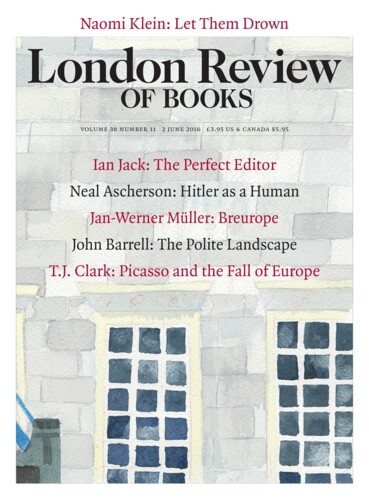What surprised me most when I became a British citizen was that I wouldn’t have to queue to vote. Even for the last general election, when turnout in my constituency neared 60 per cent, I walked straight into an empty booth. In the US, I would go to the polling station with friends so that we could chat while we waited, or bring some magazines. After my student days, I took it for granted that voting meant turning up late to work. I couldn’t go after work: the polls in the UK close at ten, but American polling stations close much earlier, in most states at 7 or 8 p.m., in some as early as six. The usual rule is that all registered voters in line before the official closing time are allowed to vote, no matter how late it gets, so long as they don’t leave. In 2012, in some parts of Florida, people were still waiting to vote past one in the morning, after Mitt Romney had already conceded the election. A bipartisan commission found that more than five million Americans had waited more than an hour to vote that year. Just recently, in Maricopa County, Arizona, people waited more than five hours to vote in the primaries. More than three million people live in Maricopa – it includes Phoenix – but it had only sixty open polling stations, one for every 21,000 registered voters, and not nearly enough voting machines. But that’s hardly a record. In 2004, students in Gambier, Ohio queued for more than ten hours. In Cobb County, Georgia, in 2008 people waited 12 hours; a woman collapsed in the sun. In my hometown, Philadelphia, a man told the local news that it didn’t matter if voting for Obama took him all day: ‘We’ve waited hundreds of years for this: we can wait a little longer in line.’
But not all Americans do wait, or not every time. In 2004, more than 15,000 voters in Columbus, Ohio were defeated by the long queues: they showed up at their polling stations, but left before they could vote. Estimates of the total number of votes lost in 2012 because of long waits range from 500,000 to 700,000 – but it may have been many more than that. A study from Ohio State University, using data collected by the Orlando Sentinel, found that 200,000 registered voters in Florida alone might not have cast ballots because they thought it would take too long – to say nothing of the people who have given up voting entirely. (Why don’t they just vote by post? In the UK, anyone can submit a postal ballot, no reason required. In the US, rules on absentee voting vary from state to state: often, as in New York, you have to claim that you’ll be out of town to qualify, with few other exceptions. An unsympathetic boss wouldn’t be reason enough.)
Voters in urban districts with the most African American voters – the places most likely to go for the Democrats – overwhelmingly wait the longest. A New York Times/CBS News study found that 18 per cent of Democrats reported that they had waited at least half an hour to vote in the 2012 election, compared with 9 per cent of Republicans. Bernie Sanders and Hillary Clinton’s campaign counsel have argued that this is hardly a coincidence in places where Republicans control the local boards that decide how many polling stations there ought to be, or in which neighbourhoods they ought to go, or how much new voting equipment to buy. Some states have experimented with giving people more time to vote, and in 2012 more than 900,000 North Carolinians voted over two weeks. Although the state went Republican overall, 48 per cent of the early voters went for the Democrats, 32 per cent for the Republicans; 70 per cent of African Americans voted early, compared with just half of whites. Since then, the state’s Republican lawmakers haven’t succeeded in cutting early voting entirely, but they’ve been able to shorten it by a week. Florida lawmakers say they’re just trying to cut their state’s early voting period to save money; the state’s former Republican chairman told the Palm Beach Post: ‘The Republican Party, the strategists, the consultants, they firmly believe that early voting is bad for Republican Party candidates. It’s done for one reason and one reason only … “We’ve got to cut down on early voting because early voting is not good for us.”’
Southern states no longer require their citizens to pay poll taxes or, if they’re black, to pass impossible ‘literacy’ tests (sample question: name all 67 county judges in Alabama) – but there are other ways to keep certain people from voting. Republicans have been most in favour of requiring voters to present official photo ID (which Americans are least likely to have driving licences? African Americans who live in cities), and of disenfranchising anyone who’s ever been convicted of a crime. And they can make the people who can least afford to take time off work wait the longest to vote. All last summer, I worried: the majority of Americans might prefer a Democratic president to a Republican – but would they be willing to wait more than an hour to vote against nice-ish Marco Rubio? I worry a little less now.
Send Letters To:
The Editor
London Review of Books,
28 Little Russell Street
London, WC1A 2HN
letters@lrb.co.uk
Please include name, address, and a telephone number.

